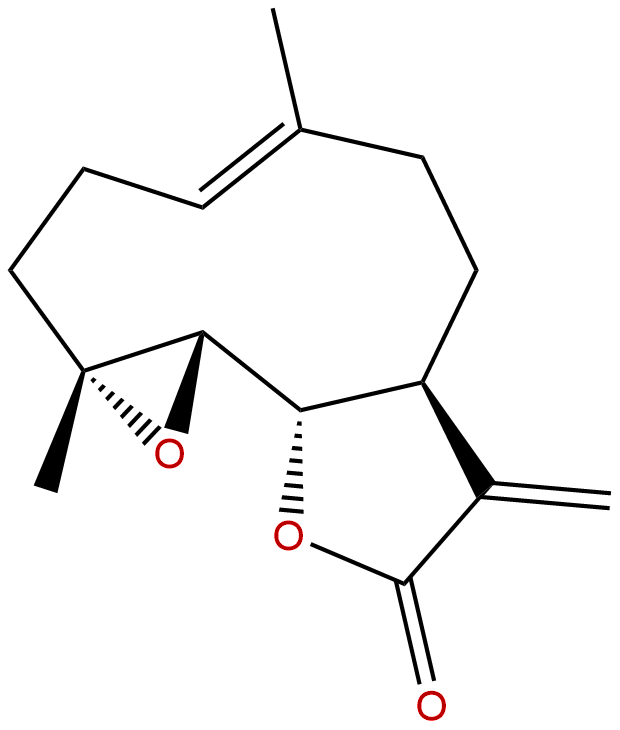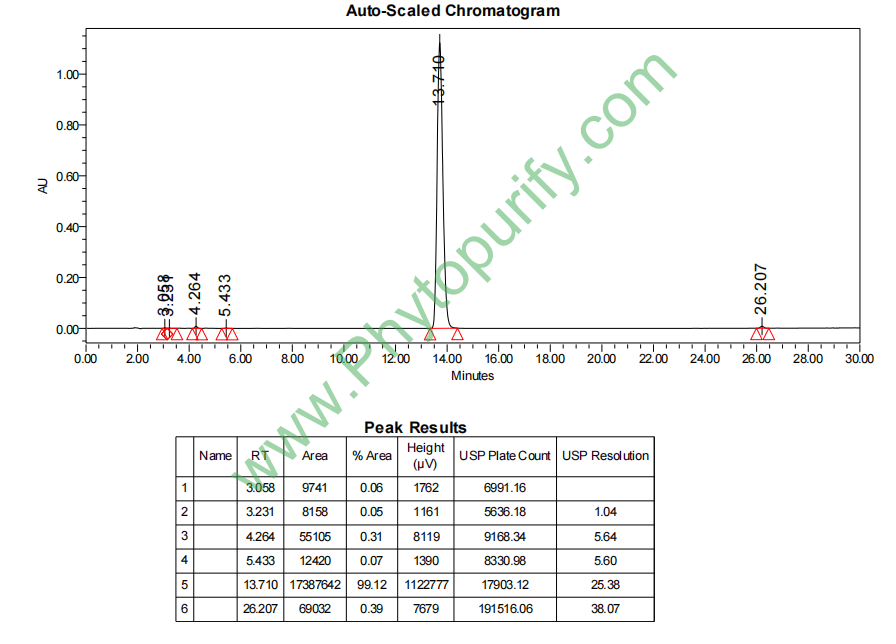
ParthenolideCAS No.:20554-84-1
|
||||||||||
 |
|
|
||||||||

| Catalogue No.: | BP1066 |
| Formula: | C15H20O3 |
| Mol Weight: | 248.322 |
Synonym name:
Catalogue No.: BP1066
Cas No.: 20554-84-1
Formula: C15H20O3
Mol Weight: 248.322
Botanical Source: numerous plants including Chrysanthemum parthenium, Michelia champaca, Michelia nilagirica, Michelia compressa, Chrysanthemum parthenium, Ambrosia dymosa, Magnolia grandiflora, Artemisia spp., Tanacetum parthenianum, Paramichelia baillonii an
Purity: 95%~99%
Analysis Method: HPLC-DAD or/and HPLC-ELSD
Identification Method: Mass, NMR
Packing: Brown vial or HDPE plastic bottle
Can be supplied from milligrams to grams, up to kilograms.
Inquire for bulk scale.
Plant Compounds Show Effects Against Prostate Cancer Stem Cells
Center for Cancer Research
Scientists at NCI’s CCR are finding early evidence that some plant-based compounds (phytochemicals) – specifically parthenolide, from the Chinese herbal medicine feverfew and gossypol, a compound isolated from cotton-seed oil – can inhibit or eliminate cancer stem cells (CSCs). CSCs are increasingly viewed as the driving force behind relapse and chemotherapy resistance in prostate and other cancers.
A growing body of evidence has identified CSCs, also called tumor-initiating cells, as the major cause of tumor progression, explained William Farrar, Ph.D., head of CCR’s Cancer Stem Cell Section and an investigator for the phytochemical study on prostate cancer which is supported by OCCAM.*
Cancer stem cells are believed to be a small subpopulation of cells within a tumor that are able to self-renew as well as give rise to more differentiated tumor cells. It is thought that these stem cells survive initial therapies (such as chemotherapy and hormone therapy) and then generate new tumor cells that are resistant to standard treatments. If prostate cancer stem cells could be identified and characterized, it might be possible to design treatments that prevent resistance.
CSCs are distinct from the cancer “progeny cells,” which are created by CSCs and make up the bulk of most tumors. Current cancer treatments focus on destroying the progeny cells “but in many cases, even after the tumor is reduced or seemingly eliminated, it grows back and becomes resistant to further treatment,” Dr. Farrar added. Many researchers now believe that the CSCs often survive initial treatment and act like “evil seeds” that regrow new, more treatment-resistant progeny cells.
In the study of parthenolide,** the researchers found that the compound killed more than 90% of CSCs in several prostate cancer cell lines and in primary prostate cancer cells. These findings were validated in mice that were grafted (xenografts) with prostate CSCs and treated with parthenolide. Previous research showed the compound was also effective against CSCs for certain leukemias, which may be the focus of the first human clinical trial of parthenolide, Dr. Farrar noted.
In future studies, Dr. Farrar’s lab will expand its library of phytochemicals, including curcumin and quercetin, and isolate CSCs to determine the effectiveness of plant compounds for other cancers. “Besides just killing CSCs, we want to look at whether we can block their ability to metastasize,” he said. “We want to get particularly aggressive with researching CSCs’ impact on pancreatic cancers.”
*Project Number: Z01BC010794
**Kawasaki BT, Hurt EM, Kalathur M, Duhagon MA, Milner Ja, Kim YS, Farrar WL. Effects of the sesquiterpene lactone parthenolide on prostate tumor-initiating cells: An integrated molecular profiling approach. The Prostate, June 1, 2009; 69(8): 827-37.
HPLC of Parthenolide
